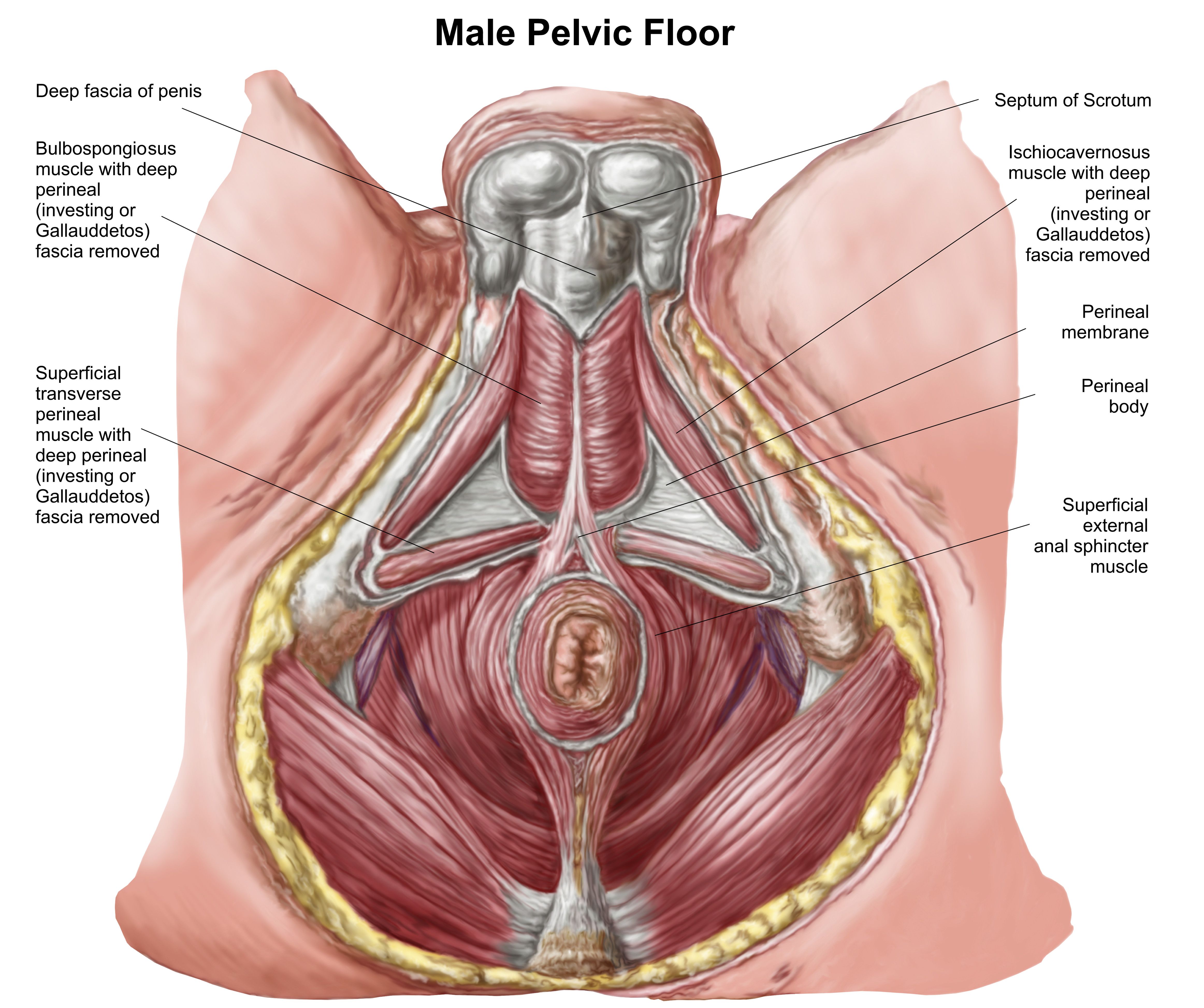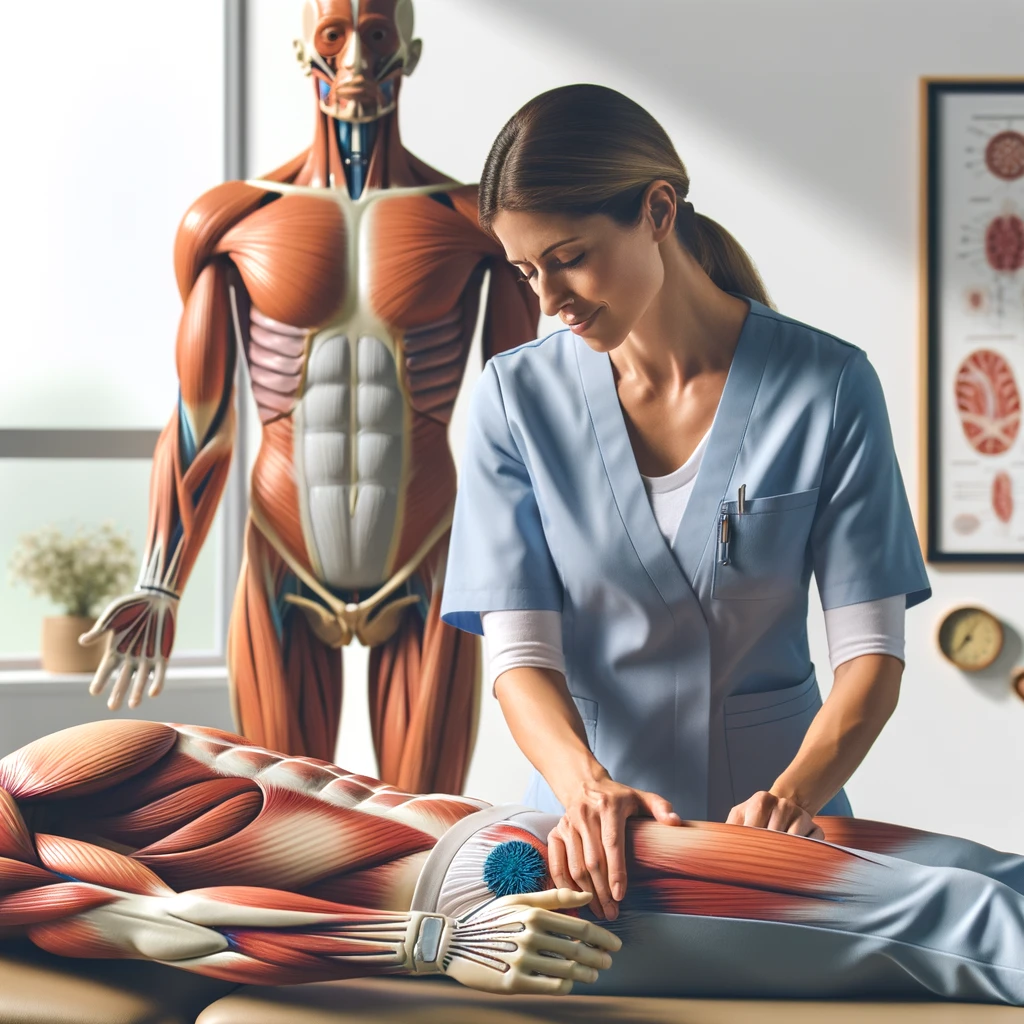Back
Understanding Hard Flaccid Syndrome and Pelvic Floor Physical Therapy Solutions
By Dr. Christine Martirez PT, DPT on 3/22/2024

Hard flaccid syndrome, though not widely recognized, is a distressing condition that affects the pelvic region, characterized by the penis constantly being in a semi-erect, semi-flaccid state. It manifests as a combination of symptoms including penile discomfort, erectile dysfunction, and pelvic pain. In this blog post, we'll delve into the mechanisms of injury, symptoms, the specific pelvic floor muscle groups involved, and how pelvic floor physical therapy offers hope and relief for those struggling with hard flaccid syndrome.
Unraveling Hard Flaccid Syndrome
Mechanism of Injury:
Though the mechanism of injury is not well researched, hard flaccid syndrome often develops due to trauma or overuse of the pelvic floor muscles. This can result from factors such as excessive masturbation, prolonged sitting, aggressive stretching exercises, or pelvic trauma.Symptoms:
Individuals with hard flaccid syndrome may experience a range of symptoms, including:Persistent penile discomfort or pain
Erectile dysfunction or difficulty maintaining erections
Pelvic pain or discomfort, often exacerbated by sitting or physical activity
Sensations of tightness or tension in the pelvic region

Pelvic Floor Muscles Involved
Bulbocavernosus Muscle:
The bulbocavernosus muscle, located at the base of the penis, is often implicated in hard flaccid syndrome. Dysfunction in this muscle can contribute to penile discomfort and erectile dysfunction.Ischiocavernosus Muscle:
The ischiocavernosus muscle, which surrounds the erectile tissue of the penis, may also be involved. Dysfunction in this muscle can affect erectile function and contribute to pelvic pain.Levator Ani Muscle Group:
The levator ani muscle group, comprising the puborectalis, pubococcygeus, and iliococcygeus muscles, forms the bulk of the pelvic floor muscles. Dysfunction in these muscles can lead to pelvic pain, discomfort, and altered bowel and bladder function.

How Pelvic Floor Physical Therapy Can Help
Comprehensive Assessment:
Pelvic floor physical therapists conduct a thorough assessment to evaluate pelvic floor muscle function and identify specific areas of dysfunction. This includes a combination of external and internal examinations to assess muscle tone, strength, and coordination.Manual Therapy Techniques:
Therapists utilize manual therapy techniques to release tension and trigger points in the pelvic floor and surrounding muscles. This may include internal myofascial release, soft tissue mobilization, and trigger point therapy to alleviate discomfort and improve muscle function.Pelvic Floor Relaxation Techniques:
Pelvic floor physical therapy incorporates relaxation techniques to address hypertonicity and tension in the pelvic floor muscles. This may involve diaphragmatic breathing, progressive muscle relaxation, and visualization techniques to promote relaxation and reduce symptoms.Pelvic Floor Strengthening Exercises:
Targeted strengthening exercises are prescribed to address weakness and imbalance in the pelvic floor and surrounding muscles. This can include exercises to strengthen the bulbocavernosus, ischiocavernosus, and levator ani muscles, promoting improved muscle tone and function.Education and Self-Care Strategies:
Pelvic floor physical therapy includes education on lifestyle modifications, posture correction, and self-care strategies to optimize pelvic floor health. This empowers individuals to take an active role in managing their symptoms and preventing recurrence.
Empowering Recovery from Hard Flaccid Syndrome
Hard flaccid syndrome can significantly impact quality of life, causing distressing symptoms and affecting intimate relationships. However, with the support of pelvic floor physical therapy, individuals can find relief and regain control over their pelvic health. By addressing muscle dysfunction, promoting relaxation, and providing education and self-care strategies, pelvic floor physical therapy offers a path to recovery and empowerment for those navigating hard flaccid syndrome.
If you are experiencing Hard Flaccid Syndrome or other pelvic symptoms associated with the issues above, please reach out to us at Pelvic Health Center in Madison, NJ to set up an evaluation and treatment! Feel free to call us at 908-443-9880 or email us at receptionmadison@pelvichealthnj.com.
Read More:
How Chronic Pelvic Congestion in Men Contributes to Prostatitis By Shannon Strauch, PTA, STMT-1 on 12/11/2024 How lymphatic issues can cause symptoms of prostatitis Prostatitis and Tight Pelvic Floor Muscles: A Comprehensive Guide By Shannon Strauch, PTA, STMT-1 on 12/10/2024 How a tight pelvic floor can be the reason for prostatitis symptoms
Are you ready to live pain free?
Request An Appointment